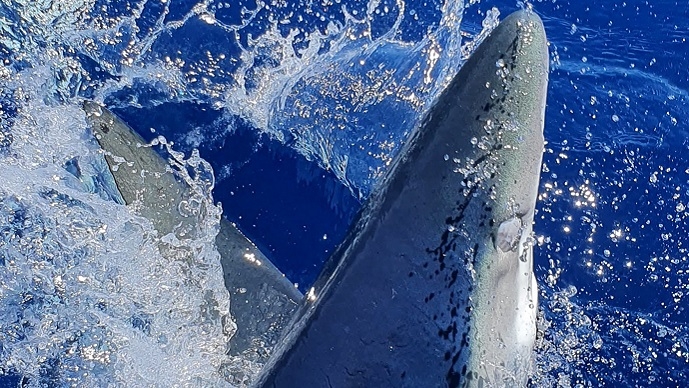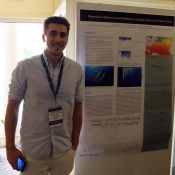O2SHARK – Assessing impacts of climate change on habitat preferences of pelagic sharks through the development of novel satellite tags
Climate change constitutes a major threat to life in the ocean, with climate projections indicating that ocean warming could increase seven-fold by 2100 in high carbon emission scenarios, which is expected to impact the movement and behaviour of marine organisms. For example, megafauna is expected to shift their vertical distribution by finding thermal refuges at preferred layers at-depth since surface isotherms are projected to deepen at increasing rates.Because body temperature is closely tied to the thermal environment, changing temperature regimes will probably compromise the performance and survival of many predatory fish species. This is particularly important for pelagic sharks given the declining global abundances due to overfishing. Although the influence of temperature on species’ distributions has a long history in ecology, the impact of dissolved oxygen (DO) has only recently received adequate attention. Climate-driven ocean warming concomitant with reduced ventilation of the deep ocean will reduce global levels of DO (ocean deoxygenation) by as much as 7% by 2100. Decreasing oxygen levels from deoxygenation have resulted in the vertical (and geographic) expansion of OMZs which is accompanied by shoaling of the upper boundaries and are expected to result in reductions in metabolic performance, particularly for fish species with high oxygen demands, such as mesothermic sharks. Expanding OMZs may further compress the depth range of sharks that are unable to live in hypoxic layers or warmer surface waters, squeezing them between shoaling oxygen minimum layers and deepening isotherms. This further reduction in shark habitat may increase their susceptibility to capture by fisheries deploying gear in the reduced habitat space. The aim of the proposed 3-year research is to determine, for the first time, how shark species will respond to ocean warming and deoxygenation, and how changing distributions will interact with fisheries. The specific objectives will (i) develop a novel ARGOS-linked satellite tag able to measure dissolved oxygen and temperature for long-term (> 180 d) tracking of sharks; (ii) determine fine-scale changes in activity patterns in relation to temperature and low oxygen associated with OMZs and test the habitat compression hypothesis directly; (iii) model projections of the effects of ocean deoxygenation and warming on habitat use patterns for quantifying climate-linked effects; (iv) identify regions of habitat loss and quantify hook encounter rates to determine susceptibility to capture risk.
Team
Principal Investigator
Researchers
Students
Technical Staff
Other members
Jorge Fontes (OKEANOS, Universidade dos Açores), Antonia Kloecker (University of Oslo), David Sims (Marine Biological Association of the UK (MBA), Rui Rosa (MARE, Laboratório Marítimo da Guia, Universidade de Lisboa)
Jorge Fontes (OKEANOS, Universidade dos Açores), Antonia Kloecker (University of Oslo), David Sims (Marine Biological Association of the UK (MBA), Rui Rosa (MARE, Laboratório Marítimo da Guia, Universidade de Lisboa)
State
Ongoing
Proponent Institution
CIBIO-InBIO/BIOPOLIS
Funded by
Fundação para a Ciência e a Tecnologia (FCT)
Dates
2022
Participant Institutions
Faculdade de Ciências da Universidade de Lisboa (FCUL), The Marine Biological Association of the United Kingdom (MBA-UK)
Reference
PTDC/BIA-BMA/3536/2021





